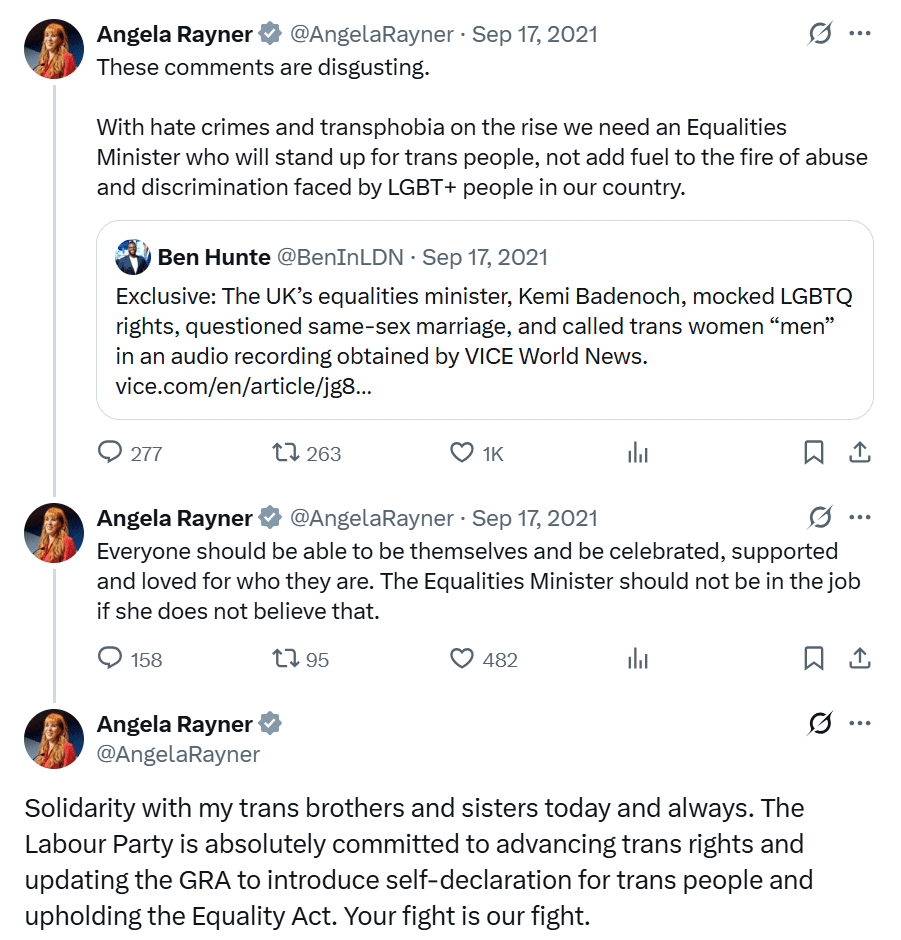Uncertainty and deep concern are rippling through the UK’s transgender community and among its allies following recent comments by a senior Labour government minister regarding bathroom access, set against the backdrop of a significant Supreme Court ruling and a perceived shift in the party’s stance on trans rights.
Bridget Phillipson, the Minister for Women and Equalities, indicated in a BBC Radio 4 interview this week that access to single-sex services, such as public restrooms, should be based on “biological sex” assigned at birth. While stopping short of explicitly directing transgender women to use men’s facilities, her comments followed directly from questions about the implications of the UK Supreme Court’s April 16 ruling.
That ruling determined that the terms “man” and “woman” within the 2010 Equality Act refer to biological sex. This interpretation effectively means that even transgender women holding a Gender Recognition Certificate (GRC), which legally recognizes their affirmed gender, could potentially be barred from women-only spaces if objections are raised.
When pressed for clarity by BBC presenter Anna Foster on whether trans women should now use men’s toilets, Phillipson reiterated that services should align with biological sex and pointed to forthcoming guidance from the Equality and Human Rights Commission (EHRC). She also highlighted the increasing availability of unisex or single-cubicle facilities in businesses as a potential solution, though acknowledging these are not universally available.
Phillipson’s current position marks a notable shift from her stance less than a year ago. In June, discussing Labour’s then-plans to simplify the GRC process, she suggested that individuals who had legally changed their gender via a GRC would be expected to use facilities corresponding to that affirmed gender.
This apparent change within the government mirrors a broader, worrying trend within the Labour Party leadership. Prime Minister Keir Starmer, who previously stated in 2022 that “trans women are women,” recently praised the Supreme Court ruling. This week, his spokesperson clarified Starmer’s current position, stating he believes that under the Equality Act, a woman is a “biological woman,” a sharp reversal from his earlier affirmations of trans identities. This follows Starmer’s comments last year expressing opposition to “gender ideology” and stressing the need to protect “biological women’s spaces.”
The situation has left many in the transgender community feeling confused and vulnerable. The lack of clear, inclusive guidance from ministers like Phillipson and previously Karin Smyth (Minister of State for Health and Social Care), who described the issue as “complex” and dependent on service providers, exacerbates the uncertainty.
This evolution stands in stark contrast to previous commitments. In 2021, now-Deputy Prime Minister Angela Rayner vehemently condemned anti-trans rhetoric from a Conservative minister, stating, “Solidarity with my trans brothers and sisters today and always. The Labour Party is absolutely committed to advancing trans rights… Your fight is our fight.” For many observers, the current trajectory raises serious questions about the reliability of that commitment.

Legal experts and LGBTQ+ advocacy groups warn the implications extend beyond bathrooms, potentially impacting various aspects of life for transgender and even intersex individuals. As legal researcher Jess O’Thomson noted for QueerAF, the focus on policing womanhood “can only hurt our wider communities.” The call now, O’Thomson suggests, is for solidarity among marginalized groups against definitions seeking to confine identities.
For transgender individuals and their families across the UK, the recent pronouncements represent not just a policy debate but a source of anxiety about navigating public life with dignity and safety, particularly in light of shifting political winds from those once seen as steadfast allies.


